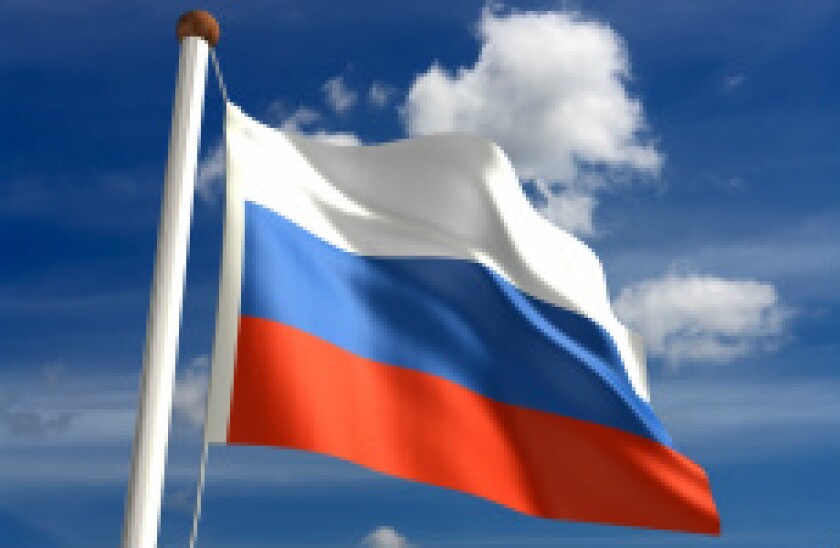This week, Polymetal closed what is expected to be one of the last Russian syndicated loans this year, a $245m pre-export finance facility with an accordion (or increase) option of another $105m.
Russian Copper Co has also announced a $200m four year pre-export finance facility with European and Russian banks this week.
Yes, that makes two Russian syndicated loans with international banks — but don't get your hopes up.
Since European and US financial sanctions stamped on the international syndicated loan market in 2014, there has been just a smattering of deals.
It is not only borrowers subject to sanctions that are affected. All Russian deals with international banks must have clauses to deal with the possibility that sanctions are imposed on the borrower during the life of the loan.
And even if an issuer agrees to repay a loan if it gets slapped with sanctions, that could prove difficult if it cannot make payments to foreign banks under the terms of the sanctions.
The market has wrestled with this dynamic for a year now, and only the safest and simplest deals have squeezed through, for fertiliser producers and miners such as Uralkali, Eurochem and Metalloinvest.
The market has shrunk back to its foundations, commodity-backed finance. Every deal this year has been a pre-export finance facility.
Russia is eking out an existence with the loan market of a frontier economy, and that is how it will remain.
January review
At the end of January 2016, the European Council will review its sanctions. Some bankers have allowed themselves to hope that this could provide relief for Russia’s stifled market, but they are being optimistic.
The EC will decide whether the measures laid out in the Minsk Agreements, to stop the war in Ukraine, have been met. Once the Minsk Agreements have been implemented, sanctions will be relieved.
But the EC does not look convinced that enough has been done in Ukraine to de-escalate tensions. A spokesperson from the EC told GlobalCapital that “implementation is ongoing, but further progress on the ground is urgent”.
This cool tone makes a loosening of sanctions at the January meeting improbable. Most view the meeting as a meaningless bureaucratic signpost and not an opportunity for change.
Double-edged sword
But even if the EC is happy with the de-escalation of conflict in Ukraine in 10 weeks’ time and revokes sanctions, US sanctions would remain. They limit certain financing to a group of Russia’s largest banks and energy companies.
Most banks operate under both regimes and would remain bridled from financial transactions with certain Russian firms.
The US “will continue to stand by the Ukrainian government until Russia abides by its international obligations”, according to the State Department's website.
The US is still keen even to extend sanctions if necessary, as it has said it is prepared to take additional steps to impose further political and economic costs on Russia.
Bilateral build-up
Russian firms have been shying away from syndicated loans and settling for easier, if more expensive, bilateral loans with Russian and international banks. The question of sanctions remain when a foreign bank lends to a Russian firm, but when dealing with just one bank, ‘sanctions language’ is far easier to navigate.
Evraz, the steelmaker, for example, obtained a syndicated loan while sanctions were in place in 2014, but this year looks likely not to bother coming back for a syndicated deal. Instead, it will stick to bilaterals.
Evraz has already secured $900m of loans this year, so may feel it is not worth the struggle of pushing against sanctions to get an international syndication when it can sign bilaterals and loans from Russian banks.
So until there is a serious improvement on the ground in Ukraine, Russia's international syndicated loan market will remain dreary and primordial. In the meantime, even more issuers could shy away from the market and negotiate bilaterally instead.

